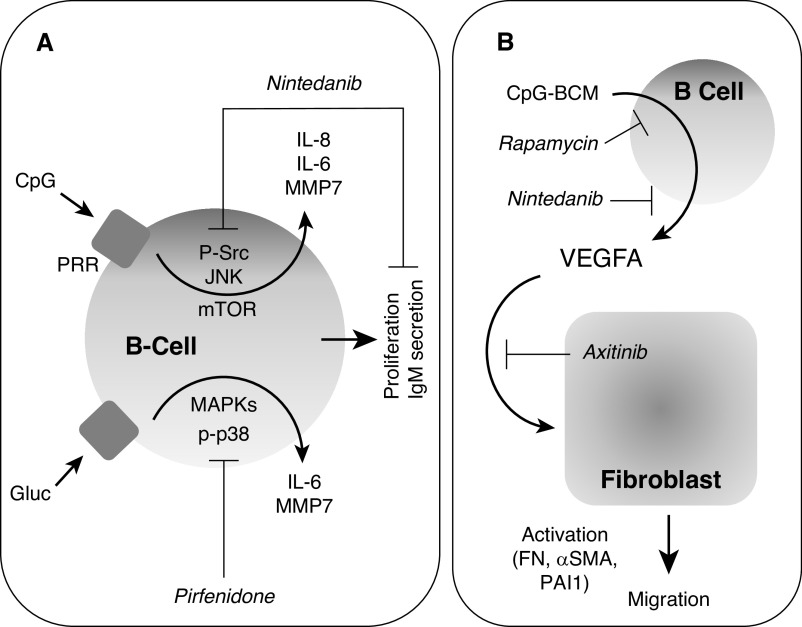Figure 1.
Effects of microbial antigens on B cells and their interaction with lung fibroblasts. (A) Microbial antigens promote B-cell proliferation. CpG and Gluc act via PRR on B cells to stimulate mTOR-dependent and mTOR-independent signaling pathways leading to the expression of cytokines and matrix metalloproteinase-7 (MMP7) as well as B-cell proliferation and IgM secretion. Nintedanib inhibits the mTOR-dependent signals, whereas pirfenidone inhibits mTOR-independent pathways. (B) Role of VEGFA (vascular endothelial growth factor A) in B cell–mediated activation of lung fibroblasts. Microbial antigens stimulate B cells to produce VEGFA via mTOR-dependent pathways inhibited by rapamycin and nintedanib. VEGFA stimulates the activation and migration of fibroblasts, which is inhibited by axitinib. αSMA = α-smooth muscle actin; FN = fibronectin; Gluc = B-glucan; JNK = c-Jun N-terminal kinase; MAPK = mitogen-activated protein kinases; PAI-1 = plasminogen activator inhibitor-1; PRR = pattern recognition receptors.

